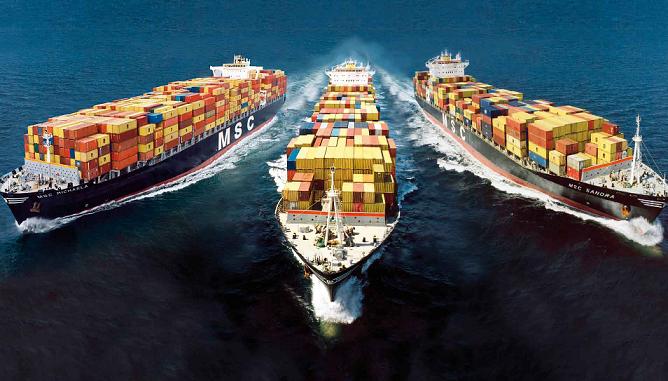The conferences are association of companies, resembling an ordinary cartel or trust, formed to control supply and prices and to limit entry into the trade. The Royal Commission of 1909 defined Shipping ring or conference as ‘a combination, more or less close of shipping companies formed for the purpose of regulating or restricting competition in the carrying trade on a given trade route or routes’. Shipping Conferences are formed only in a line trade and not in the tramp service, because the former is a more stable and regular organisation. Since the conferences are made for particular routes only, a shipping company may join many conferences on different routes. Likewise, the shipping companies may not join conference of a particular route and carry on independent business. The organisation of conferences varies. It may be completely formal or informal. A conference may have liners of various nationalities as its members and their purpose of alliance might differ from conference to conference.
To conclude that shipping conferences has two main objectives:
- To regulate competition between its members.
- To protect its members as a body against outside competition from tramps or non conference lines.
Advantages of Shipping Conferences
- Prevention of competition and protection of weaker lines: The organisation of conference regulates the competition among the liners by entering into agreements on subjects like fixation of rates, allocation of traffic and other sailing conditions. It curtails the unhealthy competition among the liners and protects the weaker liners, which otherwise would have been ousted in free competition. This also protects the liners against outside competition, particularly due to deferred rebate system, which makes the big shippers loyal to the conference lines.
- Regular sailings: The conferences have promoted regularity of service, better distribution of sailings and fixed timings. In turn, when the shipping companies are assumed of sufficient amount of traffic their cost of operation goes down and they are in a position to introduce better vessels and facilities for the shippers. Moreover, when shippers become loyal to the conference lines, it becomes obligatory on the part of the shipping companies to provide sufficient accommodation and organize sailings efficiently to meet the requirements of the shippers.
- Stability and infirmity of rates: The regulation of rates and traffic not only reduces the competition and unhealthy practice of rate — cutting but also leads to stabilization and uniformity of rates. Stability of rates is a great advantage to the shipping companies as it enables them to calculate their income more reasonably and accurately. It is also advantageous to the shipper who can calculate freight cost more exactly in their cost structure. The fluctuating rates hamper the development of international and national trade.
- Increase in sailings: When the shipping companies are not under the constant threat and danger of cut throat competition they try to promote sailings in accordance with the real needs of the traffic. New routes are served and new commodities are carried which also become remunerative in course of time.
Disadvantages of Shipping Conferences
- Creation of shipping monopolies: The conference agreements and deferred rebate system enabled many lines to create monopolies. By acquiring monopolies powers they compete with tramps and non conference lines. They have prevented the establishment of new lines and crushed non conference lines. They exert arbitrary power over rates, domestic shippers and become careless in providing proper service. They sometimes grant special rates and accommodate to large shippers and refuse to publish tariff and classification.
- Preferential treatment: The shipping conferences have given preferential treatment to some big shippers and favored them as against the other shippers. The deferred rebate system in itself is a preferential treatment, but the shipping rings offered other concessions and favor beyond the reasonable rates of deferred rebate.
- Against independent shipping: The policies adopted by these conferences are anti social and detrimental to the free and independent shipping business. The deferred rebate system compels the shippers to patronize and sponsor only the lines of the conference. This restricts the new entrants in shipping and the old non conference lines become so powerless and helpless that they have to close their line. Moreover, in the absence of competition, stagnancy and inefficiency among conference lines usually creep in. the shippers who are favored by these lines also monopolize in international trade in those commodities on certain routes as others cannot compete with them. Thus the policies and practices adopted by the conference lines are against the independent growth of shipping and international trade.
